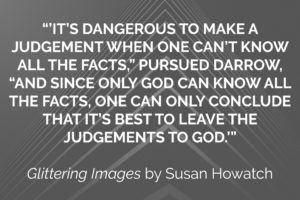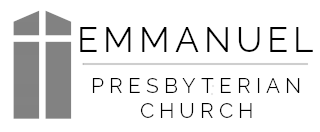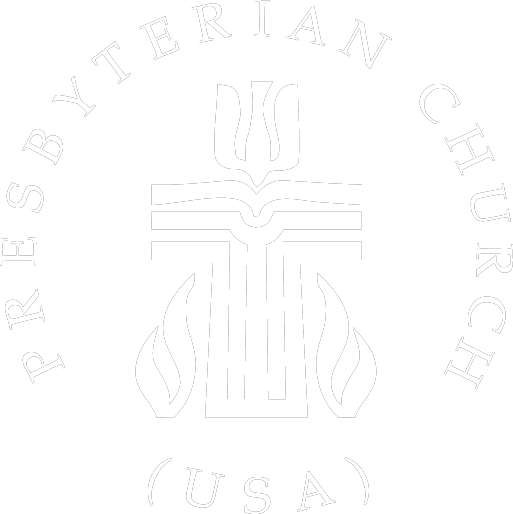
This novel by Susan Howatch is the first of six in the Starbridge series.
It is about a fictitious cathedral in England after WWI and before WWII. The characters are mostly not based on real people, but a couple get their inspiration from a few people of that period. The title of the book is an extension of the concept of “our presentable selves” or “public self”. You know, the person we project to be, believing full well no one would like the person we really are. Howatch calls this our “glittering image” the persona that appears to have it all together, unassailable, steady, unflappable. The persona many people put on each day like clothing to act as armor against the darts and arrows pointed in our direction, that try to bring us down. She introduces the phrase on the lips of Bishop Jardine of the Church of England (CoE). He himself is a supreme example of one who puts on a “glittering image”.
I’m re-reading the series at the moment.
It’s been a joy because some of the places mentioned I have actually visited in years since my first encounter with this book. One place being Lambeth Palace in London. It is the home for the Archbishop of Canterbury when he is in London. It’s across from Parliament and Big Ben and Westminster Abbey. It’s not open to the public. I had the opportunity to tour Lambeth as part of a small delegation from our denomination. We didn’t catch up with the then, new archbishop, as the CoE was right in the middle of changing from Archbishop Rowan Williams to Archbishop Justin Welby. (And yes, I’m sure that Rowan Williams and I are related! He’s currently the Principal at Magdalene College, Cambridge – C.S. Lewis’s college in his last post.)
The above underlining takes place near the end of the book.
John Darrow is the spiritual director to the main character in the book Charles Ashworth. (This book actually inspired me to seek out Wilkie Au who is my spiritual director. If you are interested in spiritual direction, let me know.) The conversation had turned to Charles wanting to condemn the behavior of another clergyman, just so he could feel better about himself.
Why underline it? It’s true.
Jesus will say that the wheat and the weeds grow up together and you would do best not try to distinguish between them, lest in trying to pull up weeds you ruin the wheat. He will tell us to pull out the log in our own eye before we attempt to remove the speck from our sister’s eye. What part of ‘judge not lest ye be judged’ don’t we get?
And yet, I’ll admit to wanting ‘those people’ to get what’s coming to them. I didn’t expect to have it so plainly stated in a secular novel as it was. I do believe we all rush to judgment. I do think we are unfair in doing so. I also believe that we are to be discerning. The above is a conversation about judging to condemn, not judging between right and wrong. The judgment of a person’s destiny is God’s alone. The judgment of right and wrong is a moral imperative laid on each of us.
One of the things I find insightful is the statement “Since one cannot know all the facts…” This true assertion gives me hope and pause. Pause to give those around me the benefit of the doubt. Because I cannot possibly know what goes into the decision process of an individual, might I simply assume that they did their best with what they had until proven otherwise?
This is hopeful to me because I think of people like my dad.
He grew up in a household where is father died when he was 14. His mother was one of the early adherents to a new religious movement in the U.S., what became the Pentecostal denomination known as the Assemblies of God. She tormented her children with God and oughts and shoulds, to the point where he and my mother moved across the country with their two daughters just to escape her judgment and interference. By-the-time I was 10 he was an alcoholic of some seriousness and had walked away from all things religious. I came to faith at age 15. By age 18 I remember my dad asking, “When are you going to outgrow this religious stuff?” He died when I was 22 as a result of his drinking.
“Since one cannot know all the facts…” perhaps God sees my father, and every other flawed human being – myself included, with a more compassionate perspective.
God does see us as we really are, with all the facts. I hope he understands. At least better than all of us.
More musings. More unfinished thoughts. But that’s where my underlinings take me. How about you?




Thank you. Very helpful.
I read those books, but need to read them again.
This definitely spoke to me this week. Thanks, Craig, for the insight. Only God can know what we are not meant to know. And I suppose trusting Him means not trying to figure out how he’s going to make things right—and even what that would look like if and when he did.
I may have to try out the book series as well!
Thanks Dori, they are a good re-read. I had missed so much the first time through.
Suzanne, I thought it was a timely posting with David’s sermon. There is so much we don’t know. Why do we build our arguments on half-truths and insufficient information? Jesus is after a humble people not a right people. Thanks for your comment!